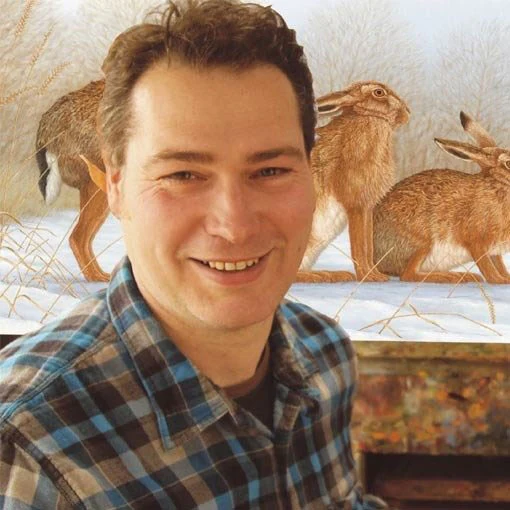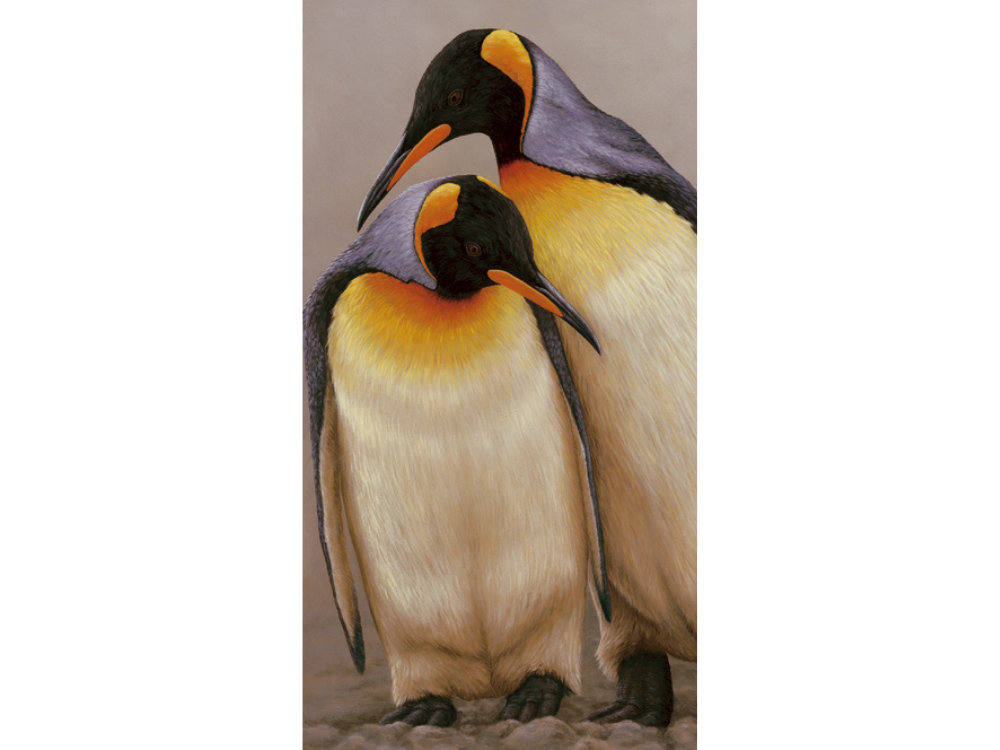King Penguin Pair | Original Painting
King Penguins at Saunders
by Robert E Fuller
Original acrylic painting
Framed size: 27 x 41 "
Image size: 15 1/2 x 30 "
King Penguins on Saunders: I travelled to Antarctica in 2007 and saw the largest penguin colony at St Andrew's Bay with over 1/2 million penguins. But these two were from the smallest colony we visited - just 18 birds - on Saunders Island, Falkland Islands.
Delivery & Returns
Delivery & Returns
Your order is precious and is insured to your door
✔ All parcels are fully tracked
✔ Usually ship on same day
✔ Guaranteed to arrive safely and securely with you
✔ We ship worldwide
UK
Shipping charge
£4.95 per order
Orders over £75: Free delivery
Delivery time
2-4 working days, but often quicker
Click & collect from the gallery
Free of charge
Order ready within 24hrs
Europe
Shipping charge
£15 per order
Delivery time
4-10 working days
Taxes & duties
Cyprus, France, Germany, Ireland, Malta, Netherlands & Portugal
Tax & duties pre-paid on all orders
All other EU countries
Tax & duties may be payable on arrival at the local rate
USA
Shipping charge
£20 per order
Delivery time
4-15 working days
Usually arrives in 8 days
Taxes & duties
May be payable on arrival at the local rate
Rest of world
Shipping charge
£20 per order
Delivery time
4-30 working days
Japan - 10 days
Canada - 5 days
Australia - 11-20 days
Taxes & duties
May be payable on arrival at the local rate
More original paintings

About the artist
Robert E Fuller is one of Britain’s foremost wildlife artists. He paints in acrylics and oils, favouring a highly-detailed realistic style. His commitment to authenticity is second to none. Robert goes to extraordinary lengths to accurately reflect the behaviour and character of his wild subjects and spends months in the field painstakingly studying a particular animal or bird before settling down to paint it back in his studio. The artist spends months studying a particular animal or bird before settling down to accurately reflect the behaviour and character of his wild subjects in his compositions. His pictures are painted from photographs taken in situ.












